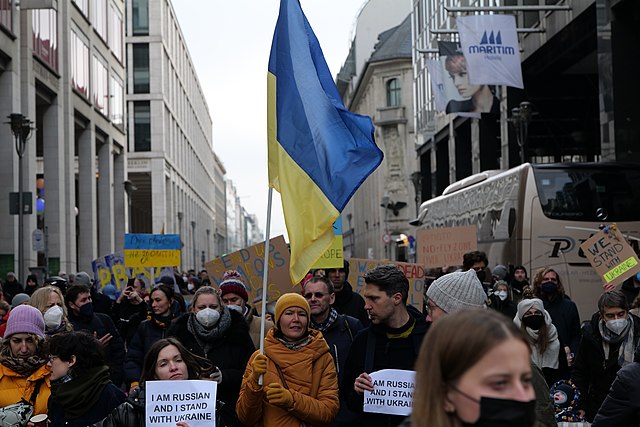The Russian Invasion of Ukraine has Brought Back Sexual Violence in the Strategy of War
Sophia Alicea
Staff Writer
CW: This article includes mentions of sexual violence
The current war in Ukraine has sparked a jarring number of sexual violence reports since the Russian invasion began on Feb. 24. The Russian invasion is bringing sexual assault and the objectification of female bodies back as a method of warfare. According to the Kyiv Post, Pramila Patten, Special Representative of the Secretary General on Sexual Violence in Conflict, reported on July 11 that there have been over 124 reports of sexual violence made to the United Nations Human Rights Council (UNHRC) since the start of the war in February. The UN Human Rights Monitoring Team for the UNHRC only expects sexual violence and the weaponization of women in Ukraine to rise, according to the United Nations.
The painful reality of armed conflicts is that the usage of sexual violence as a method of war has been around for centuries. In armed conflict, sexual violence is used systematically, to eat away at the social fabric of societies. Breaking the spirits of the abused and the waiting. The Global Justice Center deemed rape as an unlawful tactic of warfare after former UN Secretary-General Ban Ki-Moon launched his campaign in 2015 for the Elimination of Sexual Violence in Conflict. This led the International Criminal Court (ICC) to hand down its first convictions for sexual-based crimes. These convictions were a crucial reinforcement of the 1907 International Peace Conference in Copenhagen, Denmark, which then served as the foundation for the Hague Convention IV regarding the laws and customs of war on the land according to the ICC Women’s report on the historical recordings of cases of sexual violence becoming ratified into international law. But how impactful are these laws?
The ratification of these laws in international courts is prevalent more than ever today with the war in Ukraine and raises concerns about how seriously the violation of international human rights law is taken. According to The New York Times, June 23 marked the first trial of rape as a war crime for the Ukraine-Russian war—fighting for justice for Viktoriya of Borodianka. Viktoriya was raped by Russian soldiers in her village after the murder of two village men. While achieving justice Viktoriya and the hundreds of victims like her is possible, but it is made difficult by the lack of enforceability of international law. According to the Belfer Center of Science and International Affairs at Harvard University, when war crime tribunals occur, especially those that cover rape, the quest and achievement for justice become sporadic. But despite the unreliable deliverance of justice for victims of wartime rape by the ICC and divided support for the war in Ukraine by the United Nations Security Council (UNSC), there is reason to believe the mass sexual violence in Ukraine will be examined by UN war crime courts like the ICC.
The strength of the Ukrainian state provides hope for the victims to document their testimonials. Unlike other cases in Rwanda or Bosnia, Ukrainian women have some ability, due to their country’s laws, to securely report crimes committed against them. Another reason why justice is a possibility for Ukrainian women is the growing progressiveness of the ICC. The World Politics Review develops the argument that the ICC’s “growing mandate” for gender-inclusive and “sensitive” investigations makes the court more equipped than ever to both handle and follow through on convicting war criminals, especially for sexual crimes. Russia’s position on the UNSC also plays a unique and crucial role in whether or not the reported cases of rape and sexual violence will be further investigated by international courts. Although it is highly unlikely that the UNSC will develop a tribunal given Russia’s veto power, the ICC was given jurisdiction over the conflict according to an ICC report.
Whether Ukrainian women will receive justice for acts sexual violence committed against them is not a guaranteed ruling. Given the historical neglect of international courts regarding justice over women’s bodily autonomy historically. However, the ICC’s new, progressive stance may finally shed light on the atrocities suffered by war victims and give the international community hope that an end can be brought to this method of systemic violence and fear-building.


